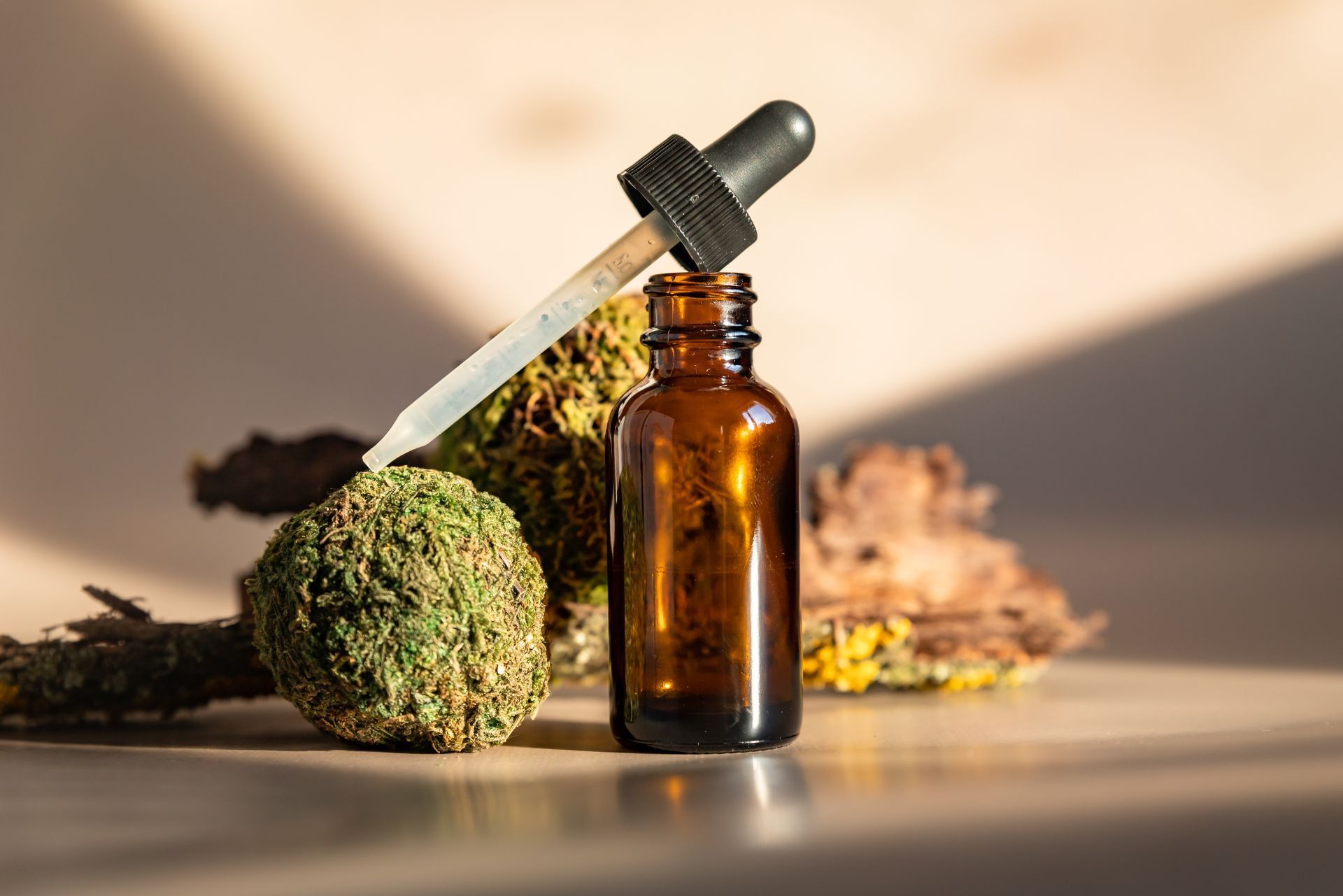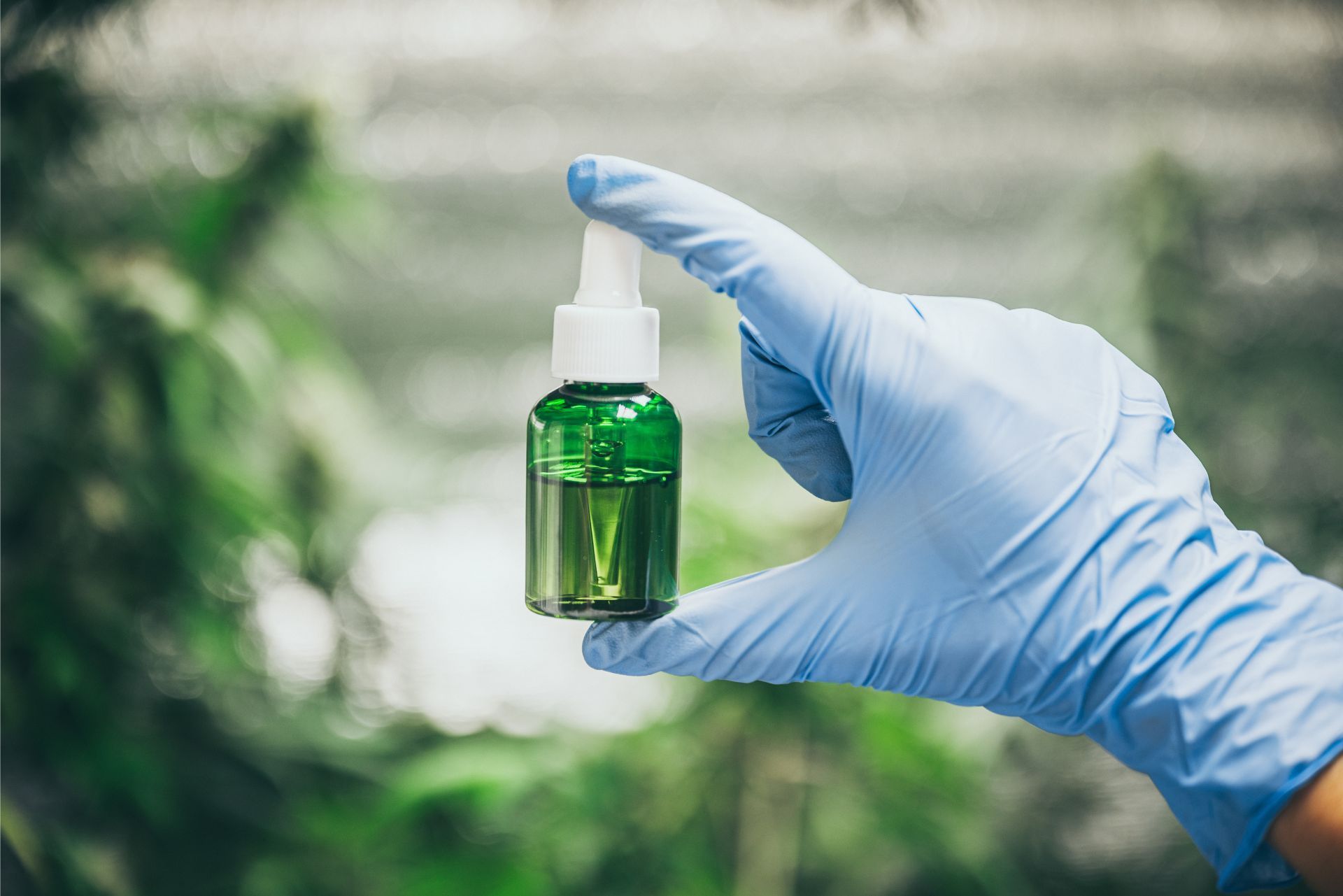Top 3 Recommended Policies

By: Lance Hale
Licensed Commercial Insurance Specialist
425-320-4280
Washington’s hemp–derived cannabidiol (CBD) market is no longer a niche. Storefronts from Bellingham to Walla Walla sell tinctures, gummies, beverages, topicals, and even pet treats. The Washington State Department of Agriculture (WSDA) counted more than 2,500 registered hemp producers and processors in 2023, and industry analysts at Brightfield Group estimate statewide CBD retail sales to exceed $285 million annually. Yet along with growth comes exposure: adverse-reaction lawsuits, labeling disputes, and costly product recalls have begun to surface. Product liability insurance is the financial backbone that shields CBD manufacturers, wholesalers, and retailers from these risks. The guide below unpacks the coverage details, legal framework, and practical steps every Washington CBD stakeholder should understand before buying a policy.
Why CBD Businesses in Washington Need Product Liability Coverage
Rapid Market Growth and Consumer Expectations
During the twelve months ending December 2023, Washington’s CBD sales rose roughly 18 percent according to Headset retail data, outpacing the national average. Expansion has been propelled by wellness-minded millennials and seniors seeking alternatives to prescription pain medications. Consumers expect products to be safe, accurately labeled, and free from contaminants. When expectations are not met, plaintiffs’ attorneys seize the opportunity. A single class-action suit alleging mislabeled potency can encompass thousands of claimants and easily eclipse $2 million in defense and settlement costs. This rising consumer demand is not just a trend; it reflects a broader cultural shift towards natural remedies and holistic health solutions. As more individuals turn to CBD for its purported benefits—ranging from anxiety relief to anti-inflammatory properties—businesses must remain vigilant in ensuring their products meet stringent quality standards. The competitive landscape means that any misstep can lead to significant reputational damage, which could deter potential customers and impact sales long-term.
Unique Legal Environment in Washington State
Washington legalizes adult-use cannabis under Initiative 502, but CBD derived from hemp is regulated separately under RCW 15.140. Although CBD is federally legal under the 2018 Farm Bill, the lack of uniform FDA guidelines generates a patchwork of state regulations. The Washington State Liquor and Cannabis Board (WSLCB) mandates additional testing for heavy metals and pesticides beyond federal baseline standards. Non-compliance can trigger administrative fines while also strengthening a plaintiff’s argument that the product was “unreasonably dangerous.” Insurance becomes critical because even if a business ultimately prevails in court, defense costs typically eclipse $400 per hour for specialized counsel in Seattle or Spokane. Furthermore, the evolving legal landscape means that businesses must stay informed about potential regulatory changes that could impact their operations. With new studies emerging and public opinion shifting, Washington's regulatory framework may adapt, leading to stricter compliance requirements. This dynamic environment necessitates not only robust product liability coverage but also a proactive approach to legal risk management, ensuring that businesses can navigate the complexities of the market while safeguarding their assets and reputation.
Understanding Product Liability Law for CBD
Strict Liability versus Negligence
Washington follows strict liability principles under RCW 7.72 for defective products, meaning a claimant need only prove that the product was unsafe and caused harm, not that the business was careless. In CBD litigation, plaintiffs often allege three types of defect: manufacturing (contaminated batch), design (excessive THC exceeding 0.3 percent limit), and marketing (inadequate warnings). Negligence claims—founded on failure to exercise reasonable care—are frequently pleaded in the alternative, broadening the scope of potential damages. This dual approach allows plaintiffs to navigate the complexities of product liability law more effectively, as they can argue both the inherent defects in the product and the lack of due diligence on the part of the manufacturer or retailer.
Common Allegations Against CBD Producers and Retailers
Recent Washington complaints highlight recurring themes:
- Mislabeled potency: Independent testing reveals lower or higher milligram counts than advertised, sparking claims of economic loss and consumer fraud.
- Undeclared THC: Trace Delta-9 THC above 0.3 percent can cause failed workplace drug tests, leading to lost wages claims.
- Contaminants: Heavy metals from soil or residual solvents from extraction processes allegedly cause nausea, respiratory issues, or liver toxicity.
- Allergic reactions: Undeclared coconut oil or soy lecithin in topicals triggers severe dermatitis or anaphylaxis.
Product liability insurance addresses both defense and indemnity for these allegations, safeguarding balance sheets and investor confidence. Producers are increasingly aware of the importance of transparency in their labeling and marketing practices, as consumer trust is paramount in the burgeoning CBD market. Many companies are now investing in third-party testing to validate their product claims, ensuring that they not only comply with legal standards but also foster a loyal customer base that values quality and safety. This proactive approach not only mitigates potential legal risks but also enhances brand reputation in an industry that is still navigating the complexities of regulation and consumer expectations.
Moreover, as the CBD market continues to evolve, regulatory bodies are likely to impose stricter guidelines and oversight, making it imperative for producers and retailers to stay informed and adaptable. The rise of e-commerce has also introduced new challenges, as online sales can complicate the traceability of products and their compliance with state laws. Consequently, businesses must implement robust quality control measures and maintain thorough documentation to defend against potential liability claims. The intersection of product safety, consumer rights, and legal accountability will remain a critical focus as the industry matures, shaping the future landscape of CBD commerce.

What Does Washington CBD Product Liability Insurance Cover?
Bodily Injury and Illness Claims
The core of any product liability policy is coverage for bodily injury. If a customer alleges that a CBD gummy caused vomiting, panic attacks, or other adverse effects, the policy pays legal fees, expert-witness costs, settlements, or judgments (up to the chosen limit). Washington’s median jury award for product cases involving mild injuries was $159,000 in 2022, but severe injury awards routinely cross the seven-figure mark. This underscores the importance of having robust insurance coverage, as even a single claim can significantly impact a business's financial stability. Furthermore, the evolving landscape of CBD regulations means that businesses must stay informed about the latest legal standards and consumer safety expectations, which can vary widely across jurisdictions.
Property Damage and Product Recall Expenses
CBD oils that leak and ruin electronics or upholstered furniture may spark property damage claims. Additionally, most insurers offer an optional Product Withdrawal/Recall endorsement covering expenses for notifying customers, shipping returns, and destroying defective inventory. The WSDA can demand product removal within 24 hours, so recall coverage is invaluable. In the event of a recall, businesses must act swiftly to mitigate damage to their reputation and customer trust. This can involve not only logistical challenges but also strategic communication efforts to reassure consumers that their health and safety are priorities. The costs associated with a recall can escalate quickly, making this coverage a critical component of a comprehensive risk management strategy.
Defense Costs and Legal Fees
Washington is a “duty-to-defend” state, meaning insurers typically control the defense once a claim is tendered. Comprehensive policies provide outside-the-limits defense—legal expenses do not erode the liability limit. Given that a straightforward CBD contamination suit may cost $150,000 in expert fees alone, this feature protects the full indemnity limit for a potential settlement. Moreover, the complexity of CBD-related litigation often requires specialized legal expertise, which can further drive up costs. As the industry matures, businesses may face increasingly sophisticated claims that necessitate a nuanced understanding of both product liability law and the specific properties of CBD products. This evolving legal landscape highlights the necessity for businesses to engage with knowledgeable legal counsel who can navigate these challenges effectively.
Occurrence vs. Claims-Made Forms
Occurrence policies cover incidents that take place during the policy period, even if the claim surfaces years later. Claims-made policies respond only when both the incident and the claim occur while the policy is in force (or within an extended reporting period). Occurrence forms cost 10–20 percent more but offer long-tail protection for products with extended shelf lives. Most Washington CBD manufacturers opt for occurrence coverage to hedge against delayed adverse-reaction allegations.
Additional Insureds and Vendor Coverage
Wholesale distributors and big-box retailers routinely require to be named as additional insureds. Securing a blanket additional insured endorsement simplifies compliance and accelerates purchase-order processing. Likewise, vendors coverage extends protection to retail partners automatically, reducing contractual friction and demonstrating professionalism.
Limits, Sublimits, and Deductibles
Standard policy limits range from $1 million per occurrence / $2 million aggregate to $5 million / $10 million for larger operations. Sublimits may apply to product recall ($250,000–$1 million) or labeling errors. Deductibles (aka self-insured retentions) typically fall between $2,500 and $25,000; higher deductibles can reduce premiums but require robust liquidity planning.
Factors Influencing Premiums in Washington
Product Type, Potency, and Delivery Method
Insurers rate ingestibles (gummies, capsules, beverages) higher than topicals because ingestion poses a systemic exposure. Vapes incur the highest loading due to prior lung-injury litigation. Potency tiers matter too: formulations above 50 mg CBD per serving can trigger 15–30 percent surcharges. Businesses with a diverse SKU lineup may negotiate blended rates if they provide granular sales breakdowns.
Supply Chain Controls and Testing Protocols
Underwriters scrutinize certificates of analysis (COAs), batch-tracking software, and third-party lab accreditations (ISO/IEC 17025). Demonstrating that each lot undergoes pesticide, solvent, microbe, and mycotoxin screening can reduce rates by up to 20 percent. Conversely, reliance on overseas raw materials without traceability can prompt declination or a premium hike.
Claims History and Risk Management Programs
Five years of loss runs are generally required. A clean record positions applicants for preferred pricing, while even one paid claim can double the rate. Implementing Good Manufacturing Practices (GMP), employee safety training, and a documented recall plan signals maturity, enticing carriers to compete for the account.
Steps to Obtain the Right Coverage
Preparing Underwriting Information
Gather detailed product descriptions, sales projections, lab test summaries, SOPs, and organizational charts. Include marketing materials to show that no unsubstantiated medical claims are made. Transparent disclosure reduces back-and-forth and speeds approval.
Comparing Specialized Carriers
Only a handful of insurers actively write hemp-derived CBD liability in Washington, including certain Lloyd’s of London syndicates, surplus-lines carriers, and captive programs. Solicit at least three quotes through a licensed surplus-lines broker familiar with the cannabis sector. Compare not just price but exclusions; some policies omit vape products, pet treats, or Delta-8 derivatives.
Negotiating Terms and Ongoing Compliance
Request removal or softening of broad health-hazard exclusions. Ask whether test-batch deductibles apply to each claimant or per occurrence. Once the policy is bound, calendar renewal timelines and maintain updated COAs; lapses can create coverage gaps.
Real-World Claims Examples from the Northwest
Adverse Reaction to High-Potency Gummies
A Tacoma resident consumed a 100 mg CBD gummy labeled “Extra Strength” and alleged a panic episode requiring emergency care. Toxicology reports indicated 2 mg of Delta-9 THC—above the legal limit. The manufacturer’s product liability insurer covered $190,000 in defense and $275,000 in settlement. Notably, the policy’s trace-THC exclusion was negotiated out during purchase, underscoring the value of savvy brokering.
Contaminated Vape Cartridges Incident
In Spokane Valley, three consumers claimed severe coughing fits after using CBD vape cartridges later found to contain vitamin E acetate. All three sued the processor and the local dispensary. The processor’s $2 million policy responded, but legal fees approached the per-occurrence limit. Because the retailer was named as an additional insured, its own policy remained untouched, preserving clean loss runs for future renewals.

Complementary Risk Management Strategies
Robust Quality Assurance and Lab Testing
Implementing hazard analysis and critical control points (HACCP) minimizes contamination. Many Washington CBD companies partner with Bellingham-based labs that provide chain-of-custody documentation, strengthening defensibility in court.
Transparent Labeling and Marketing Practices
The Federal Trade Commission and Washington’s Consumer Protection Act penalize unsubstantiated health claims. Labels should avoid language like “cures anxiety” unless supported by clinical evidence. Clear dosage instructions and allergen disclosures lower both regulatory and liability exposure.
Customer Education and Complaint Handling
A rapid response to consumer complaints—ideally within 24 hours—shows goodwill and may deter lawsuits. Maintain a dedicated email and phone line, log all interactions, and automate follow-ups when COAs are updated. Transparency often diffuses anger before it escalates to litigation.
Future Outlook for CBD Liability in Washington
Potential Federal Reclassification
The U.S. Department of Health and Human Services recommended rescheduling cannabis to Schedule III in late 2023. Although hemp-derived CBD is already unscheduled, a broader federal change could spur FDA rulemaking for ingestible CBD. Stricter labeling and GMP requirements may temper litigation by creating uniform safety standards, yet transitional periods often spark claims as businesses scramble to comply.
Evolving Science and Consumer Trends
Studies from Washington State University’s College of Pharmacy are exploring CBD–drug interactions, potentially broadening the universe of warning-label requirements. At the same time, nanoemulsified beverages and CBD-infused seltzers are booming in Seattle’s craft-drink scene. These novel delivery methods introduce new risk profiles that insurers will be quick to price—likely at a premium until loss data accumulates.
Key Takeaways for Washington CBD Stakeholders
1. Washington’s CBD boom presents lucrative opportunities but exposes businesses to strict-liability lawsuits, recalls, and regulatory penalties.
2. Comprehensive product liability insurance covers bodily injury, property damage, legal defense, and often product withdrawal—if crafted correctly.
3. Underwriters focus on product form, potency, testing protocols, and claims history; robust quality controls can materially reduce premiums.
4. Occurrence-based policies with outside-the-limits defense costs offer long-tail protection for ingestibles and vapes.
5. Negotiating endorsements—additional insureds, recall expense, removal of broad exclusions—adds practical protection beyond headline limits.
6. Real-world cases in Tacoma and Spokane illustrate that a single contaminated batch can cost hundreds of thousands of dollars.
7. Complementary risk management—HACCP, transparent labeling, and proactive customer service—minimizes both claim frequency and severity.
8. Pending federal rescheduling and evolving research may reshape Washington’s regulatory landscape, making flexible coverage and continuous compliance essential.
For Washington CBD entrepreneurs, investors, and retailers, product liability insurance is not just another line item—it's the lifeline that preserves cash flow, reputation, and customer trust when the unexpected occurs. Securing the right policy today positions businesses to grow confidently in tomorrow’s dynamic cannabinoid marketplace.

